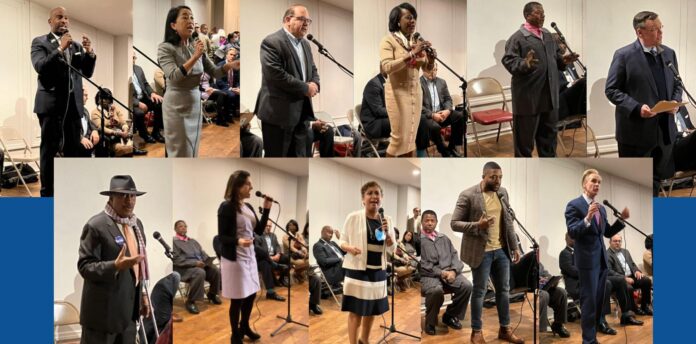
It’s February, and that means we’re three months away from the primary election that will decide our city’s next mayor, city council, judges, and other offices. Just as we had eight years ago and eight years before that, there are numerous candidates running for mayor. For a voter, it can be overwhelming to try and research every single candidate’s positions. Many voters, understandably, vote merely on name recognition or based off of the endorsement of some person or some organization they trust. But if you have the time and means, you should make the effort to learn as much as you can about each candidate. It’s not as complicated as it seems.
Many media outlets across the city, including PGN, are doing articles on the mayor’s race where we outline the various positions that each candidate takes. Last week PGN co-hosted an event attended by all the mayoral candidates, and I wrote an article summarizing what each candidate said. They didn’t get too deep into their policy positions, but their words were still very revealing about who they are as people and what they will prioritize if they become mayor.
If you’re able to attend a live event like the one last week, I strongly encourage you to do so. You’ll learn about the candidates in a way that text simply cannot convey. But even if you read just a couple articles summarizing the candidates, you’ll be able to make an informed decision and not simply rely on someone else to tell you how to vote.
Fortunately, all of the Democratic candidates for mayor are friendly to the LGBTQ community. But that doesn’t mean all of them are equal when it comes to their support of LGBTQ issues or other issues impacting our city. PGN will do our best in the next three months to help provide a clear picture about where each candidate stands on not just the LGBTQ community, but on other issues that impact us such as gun violence, healthcare, and education.
It’s not just where a candidate stands on issues that matter, though. There is a human element to elections too. A voter might see a candidate’s ad on television and like the way they present themselves. They might meet a candidate at an event and dislike something they said or something they wore. Factors other than policy positions impact how voters see candidates. Oftentimes, first impressions are the most influential factor in which candidate a person will vote for, much like it is for all our relationships.
But there’s too much at stake in modern politics for voters to base their decision on a first impression. As much as it’s human nature for us to judge others quickly, it’s irresponsible for us as voters to rely solely on one image or one commercial or one statement, especially when it comes to how candidates feel about the LGBTQ community. Candidates can say they are allies, but do their actions match their words? Candidates may not be the best spoken on our issues, but are they putting in the time in our community? Candidates might not be knowledgeable on one issue we care about, but are they knowledgeable on other issues?
We owe it to ourselves and our community to look beyond first impressions and to approach each candidate with an inquisitive mind. We also owe it to ourselves to expect more than just an ally in the mayor’s office. We deserve someone who will truly work with the community to improve the lives of everyone who is a part of it. If it takes a little bit of research to discover who the best person to do that will be, the research will be completely worth it.
